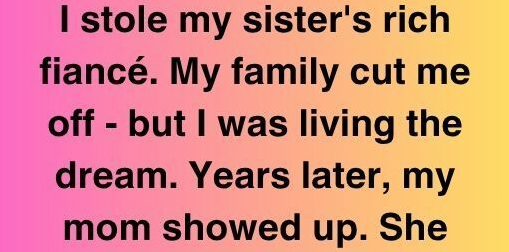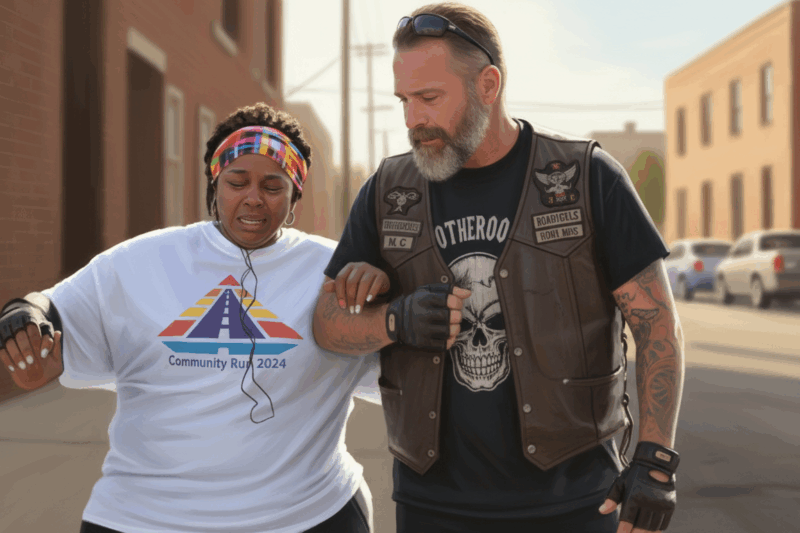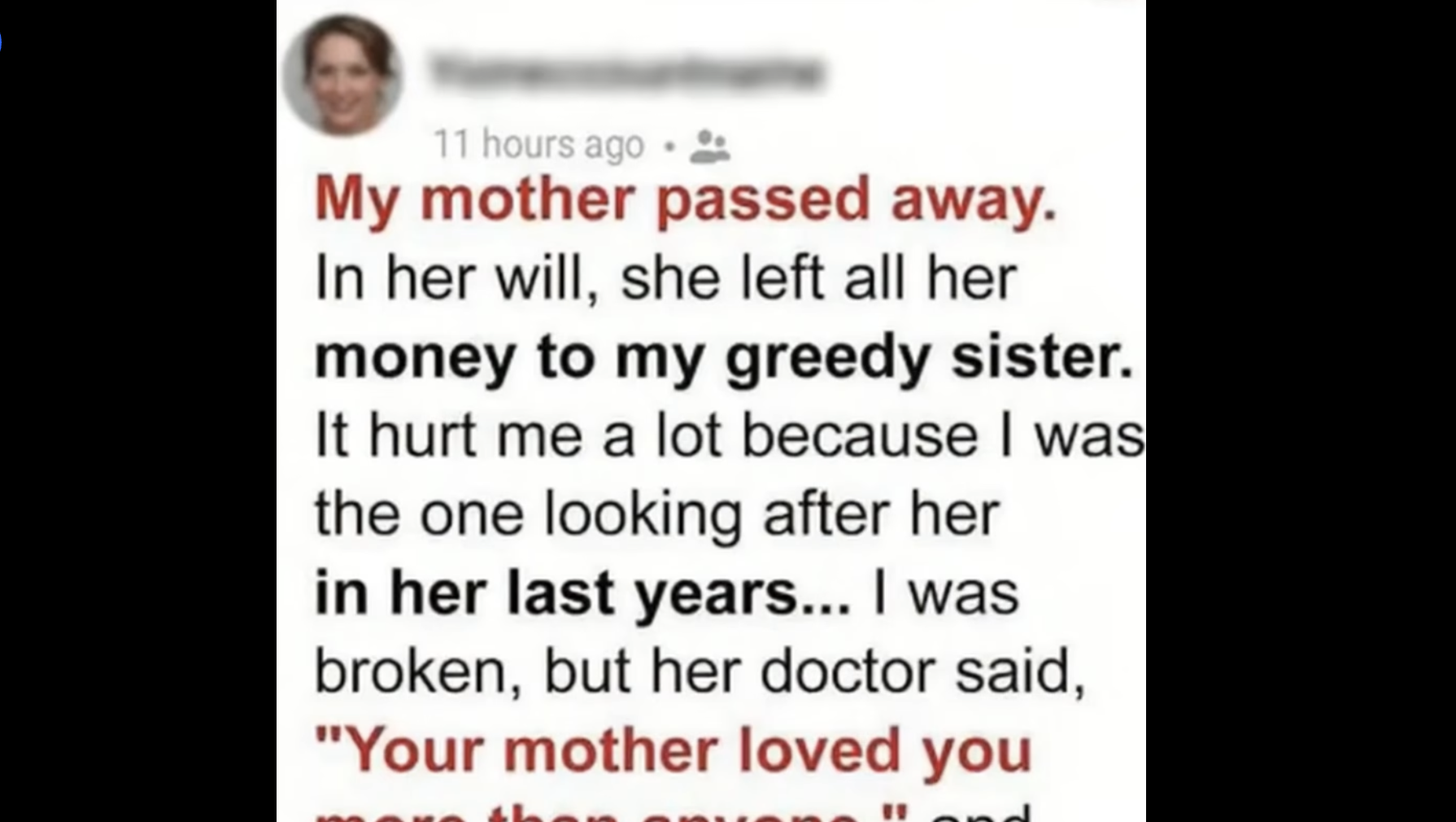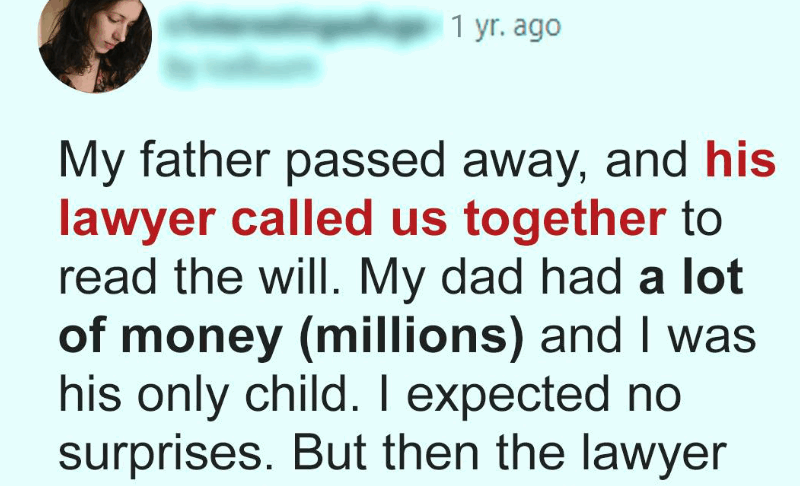I took my sister’s wealthy fiancé for myself. My family disowned me, but I thought I’d found paradise. Years later, my mother appeared at my door. She handed me an envelope, saying, “Even you don’t deserve this kind of pain.” My heart stopped when I saw the photograph inside: my husband, Jonathan, in bed with another man, their intimacy undeniable.
That moment shattered my world.
To grasp how I reached that point, let me take you back to the beginning. I was a 24-year-old waitress, scraping by with no savings, watching my older sister, Thea, live a life that seemed flawless.
Thea was always the star. Perfect grades, a rising career in law, and a fiancé, Jonathan, who seemed straight out of a dream. Tall, successful, and effortlessly kind—he remembered my mom’s favorite flowers and brought them every visit.
Their perfect romance made me feel small. Invisible.
One evening, Thea asked me to drive Jonathan home after a family dinner because she was called away for work. In the car, he loosened his tie and said, “You’re not like Thea. You’re real, unpolished. It’s refreshing.”
I should’ve brushed it off. Instead, I leaned in.
Soon, I was finding excuses to cross paths with him—coffee shops, bookstores, the lake trail where he jogged. I told myself it was innocent, just a spark of excitement. But it grew. Texts turned into late-night conversations. Conversations turned into stolen moments in hotel rooms. Four months later, he ended his engagement to Thea.
Two weeks after that, he proposed to me.
My family was livid. At a tense family dinner, Thea stared at me, her face like stone. My mother called me a disgrace. My father said I no longer existed to him. I tried to explain—Jonathan chose me, love wasn’t simple—but they wouldn’t listen.
So I left. I moved into Jonathan’s luxurious penthouse, convincing myself I’d made the right call. Six months later, we married in a quiet ceremony, surrounded only by his colleagues and a bottle of fine champagne.
For a time, life sparkled. Designer handbags, trips to Capri, dinners at restaurants where the menus felt like poetry I couldn’t quite read.
But something felt wrong.
Jonathan grew distant. Reserved. Our connection lacked the warmth I’d seen between him and Thea. He worked late, traveled often, sent anniversary gifts through his assistant. I told myself this was just how successful men lived—busy, consumed by their world.
Still, loneliness crept in.
I’d scroll through old photos, seeing Thea’s radiant smile next to him. It lingered in my mind, a quiet ghost.
One evening, I ran into Thea at a grocery store. She looked older, a little tired, but steady. I braced for her anger, but she only said, “I hope it was worth it,” and walked away.
Sleep eluded me that night.
Years rolled by. I threw charity galas, posted polished photos online, and played the part of a woman living her dream.
Then, one afternoon, my mother appeared at my door.
She looked frail, worn by time. Without a greeting, she handed me an envelope and said, “Even you don’t deserve this kind of pain.”
I gave an uneasy laugh, puzzled. But when I opened the envelope, my breath caught. The photo showed Jonathan in bed with a man, their closeness unmistakable, like lovers lost in each other.
It wasn’t the fact that he was with a man—it was the realization of a truth I’d ignored for years.
My mother didn’t stay. She turned and left.
I sat for hours, the photo in my hands, my mind unraveling. His coldness, his distance, his endless trips—it all clicked into place.
That night, I confronted him. He didn’t deny it. He looked almost relieved.
“I tried,” he said. “I thought I could make it work, first with Thea, then with you. But I was hiding from myself.”
I asked how long it had been going on.
“Before Thea,” he said. “Always.”
He told me about Marco, a man he’d loved for a decade. They’d parted because Marco wanted him to live openly, but Jonathan chose image, status, and me.
“I thought marrying a woman would fix it,” he admitted softly.
I asked if he’d ever loved me.
He stayed silent.
A week later, I left him.
The divorce was straightforward—prenups saw to that—but starting over was brutal. I had no family, no close friends, no safety net. I rented a small apartment above a laundromat and took a job at an art supply store. It wasn’t glamorous, but it felt honest.
Three months later, Thea sent me a message: Coffee?
I almost didn’t go. But I needed to face her.
She was already at the café, her expression calm but warm. “I heard,” she said. “I’m sorry.”
“You’re sorry?” I asked, stunned.
She nodded. “I always sensed something was off with him. I was furious with you for years. But now… I think he used us both, in different ways.”
We sat quietly for a while.
“I’m not asking for forgiveness,” I said. “I was so lost when I did what I did.”
Thea sipped her coffee, then met my eyes. “You were selfish. But you’re not a monster. And I’ve made my own mistakes.”
We didn’t become inseparable right away. But coffee led to monthly lunches, then phone calls. One day, she invited me to meet her daughter, a little girl with curls and a laugh that filled the room.
Thea had built a new life—married to a kind teacher, raising their adopted daughter. Holding that child, I felt something shift inside me.
I started painting again, a passion I’d abandoned since college. I sold a piece at a local art fair, then another. Within a year, I opened a small studio with my savings. My work caught attention—a local magazine featured me, and clients began commissioning pieces. My art wasn’t about glory; it was about truth. And it connected with people.
One rainy afternoon, Marco walked into my studio.
Yes, that Marco.
He seemed nervous, said he’d seen my name on a gallery flyer. We talked for hours. He shared that Jonathan had come out and they were together again, happier now.
I wanted to feel bitter, but instead, I felt free.
One evening, I hosted a small exhibit for local artists. Thea came with her husband and daughter. My mother showed up too.
We took a photo together, all of us, arms around each other, no resentment—just quiet healing.
In that moment, I understood something vital.
Life doesn’t celebrate perfection. It honors growth. Those who stumble the most can rise the farthest.
I made terrible choices. I caused pain. But I didn’t let that define me forever.
I owned my actions, faced their consequences, and rebuilt my life, piece by honest piece.
If you’re reading this and you’ve faltered—hurt someone, taken a wrong turn—know this: You can still find your way back. You can still become more.
It begins with honesty.
If this story resonated with you, give it a like. Share it. Someone out there might need to hear it too.




